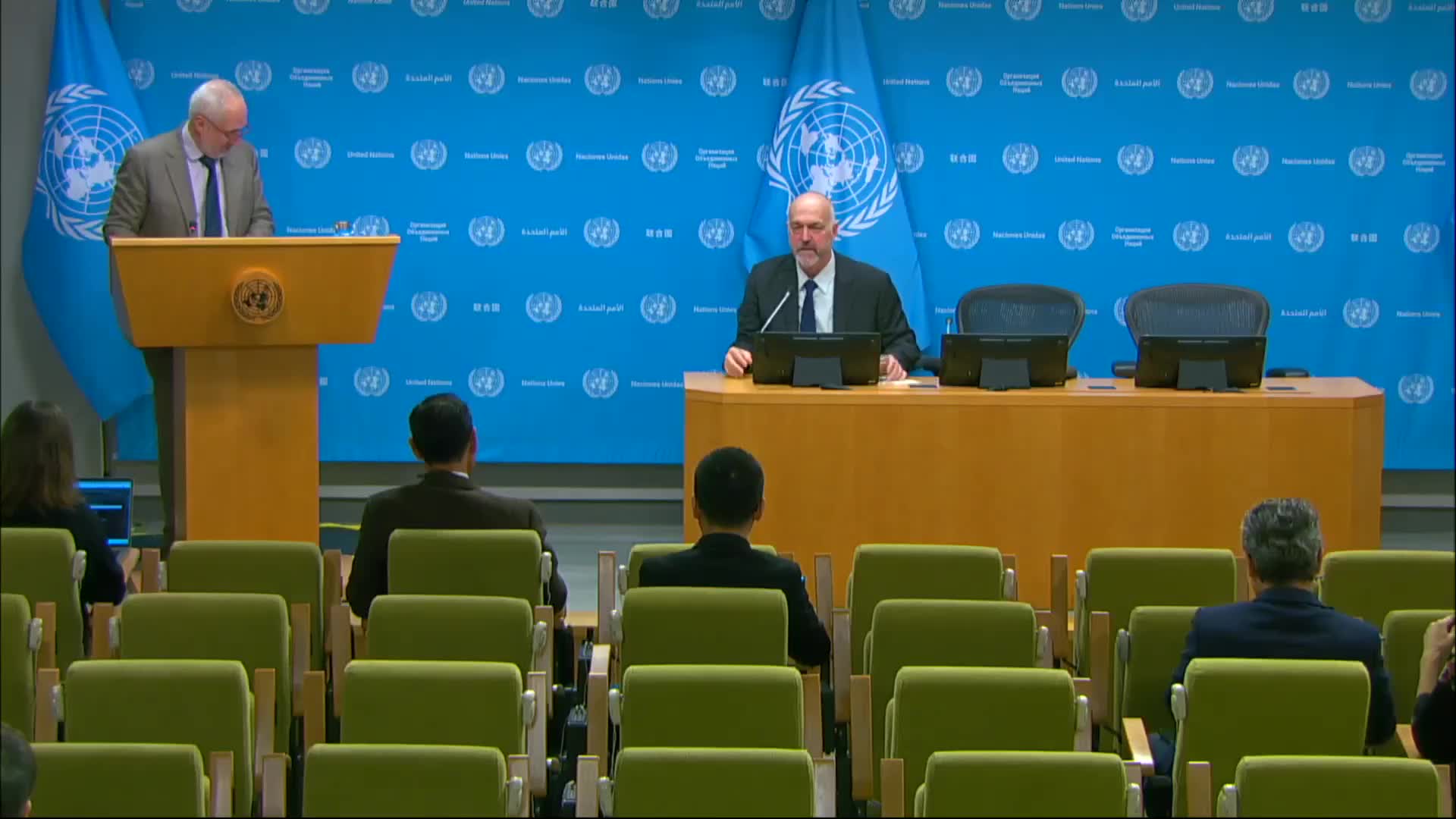U.N. investigator warns Myanmar violence is expanding, cites funding shortfalls at evidence unit
Get AI-powered insights, summaries, and transcripts
Subscribe
Summary
Nicholas Koumjian, head of the Independent Investigative Mechanism for Myanmar, told reporters in New York that the situation in Myanmar is worsening and that his office is sharing evidence with the International Criminal Court and other legal processes.
Nicholas Koumjian, head of the Independent Investigative Mechanism for Myanmar, told reporters in New York that the situation in Myanmar is worsening and that his office is sharing evidence with multiple international processes, including the International Criminal Court and proceedings at the International Court of Justice.
Koumjian spoke after presenting the mechanism's annual report to the U.N. Third Committee. He said the mechanism was established by the Human Rights Council and endorsed by the General Assembly to collect and preserve evidence of the most serious international crimes committed in Myanmar so that national or international courts can pursue prosecutions.
"What we reported, same as the others, is that the situation in Myanmar, unfortunately, is only getting worse," Koumjian said. He described the mechanism's origins in the 2017 crisis that forced more than three-quarters of a million Rohingya across the border into Bangladesh and said the 2021 military coup has greatly expanded the scope of crimes the mechanism must investigate.
Koumjian said his office has shared evidence with several ongoing processes, including an investigation in a federal court in Buenos Aires, Argentina, and the International Criminal Court, which he said is investigating because Rohingya were forced onto the territory of a member state. "The judges of the court have authorized an investigation in that regard," he added. He also referred to the case filed by The Gambia alleging Myanmar failed to meet its obligations under the Convention on the Prevention and Punishment of the Crime of Genocide and said written proceedings had closed last year, with hearings anticipated early next year.
Koumjian said the mechanism is also examining who supplies the means for crimes in Myanmar and where profits accrue, and that it has seen some evidence suggesting violations of sanctions laws in certain countries where military material is being sent to Myanmar. "We have seen some evidence of violations of sanctions laws in certain countries where material is being sent, military material, that's ending up in Myanmar," he said.
Raising concerns about planned elections under Myanmar's de facto authorities, Koumjian said the contests amount to "elections without a choice." He said the military recently passed a law creating penalties of up to 10 years for protesting the election and warned that attacks on election workers or people facilitating the vote could be unlawful under the laws of war. "Only combatants can be targeted," he said, adding that targeting people because they are participating in or facilitating an election would be a violation of the laws of war.
Pressed by reporters, Koumjian said his mechanism does not compile comprehensive casualty tallies but cited other reports indicating large-scale displacement. He reiterated that roughly 750,000 Rohingya were forced across the border in 2017 and said that Bangladesh and UNHCR report about 150,000 more Rohingya have fled to Bangladesh in recent years because of ongoing violence.
Koumjian also warned that the mechanism faces significant financial constraints that imperil its investigative capacity. He said the office has typically raised about $2 million to $3 million a year in extra-budgetary funding and that those resources support units such as an open-source team that collects internet-based evidence. Without more funding, he said, the open-source unit could be lost around April and three experts on sexual violence and crimes against children could face termination. He said the mechanism could lose up to a third of its staff by early next year.
The mechanism, he added, lacks access to crime scenes in Myanmar and said authorities have not permitted the office to operate in country. He urged anyone with firsthand evidence of war crimes in Myanmar to contact the mechanism and said the office does not consider victims' or perpetrators' ethnicity, religion or nationality when collecting evidence.
Asked about donors, Koumjian said extra-budgetary funding comes from a variety of states and that funding reductions are not solely the result of one country's decision. He said the mechanism is talking to judicial authorities in states that have expressed interest in the evidence it has gathered.
Koumjian concluded by reiterating the need for more resources and for witnesses or states with relevant evidence to come forward. "We continue to gather evidence. We welcome anyone who has firsthand evidence of war crimes in Myanmar to contact us and share the evidence," he said.
Reporter questions during the briefing came from Michelle Nichols of Reuters, Islam Dora of Anadolu Agency, Gabriel Luzando of Al Jazeera English and Yoon Jap Heng of Xinhua News Agency; a U.N. moderator identified in the briefing as Shereen opened and closed the session.
The Independent Investigative Mechanism for Myanmar did not announce any new formal referrals or legal filings at the briefing.
